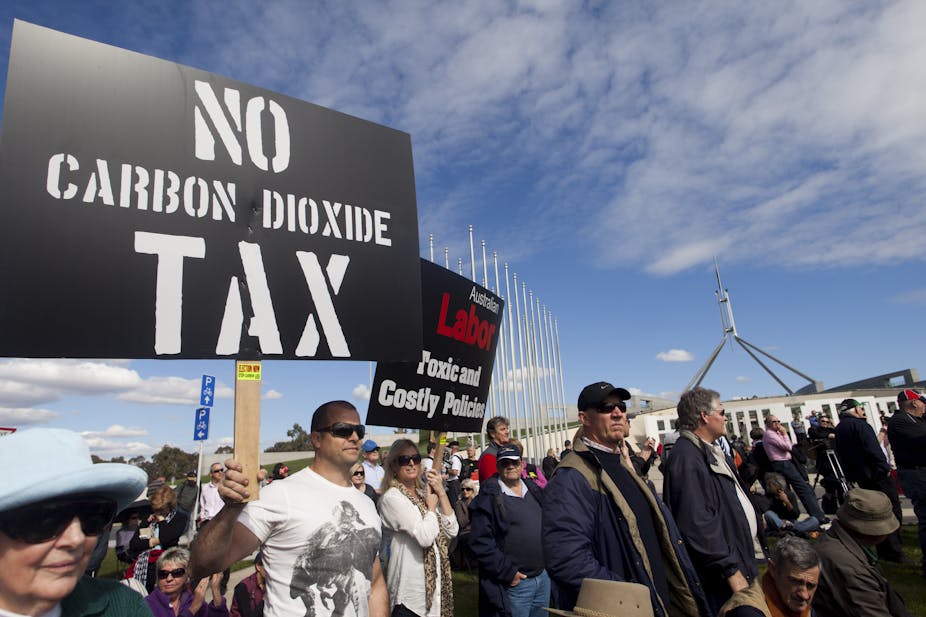It all started in February when Prime Minister Julia Gillard announced her government would seek to introduce a carbon tax.
This signalled the start of a policy debate marathon that still shows no sign of slowing down. Is it time the debate stopped?
It’s been a hard slog for the government. The strategy of initially releasing the carbon tax concept, without details, attracted much derision from some commentators early in the year. The claims of Gillard having “lied” to Australians became a major driver of the political debate.
Furthermore, opinion poll after opinion poll showed a fall in the government’s support. More concerning for the government has been the fact that, even after the release of the carbon tax details and accompanying advertisements, an increasing percentage of the public seems to be supporting the opposition.
While the government has tried to deal with these problems, Tony Abbott appears to have succeeded in a simple task: saying “no” to the carbon tax. If opinion polls are anything to go by, Mr Abbott’s argument has resonated with a significant number of voters who are concerned about the impact of a new tax.
There have been rallies, forums, speeches and publicity stunts from both sides of the carbon tax argument. In this sense, the public has been “treated” to a lengthy debate on the merits of the government’s carbon tax proposal.
This week the debate entered a new stage when the government finally introduced the package of 18 carbon tax bills to parliament.
But the question is “what’s the point with debating the issue now?” After all, the government appears to have the numbers to pass the bills and the opposition has been unsuccessful in swaying the independents in parliament to their cause.
In Australia’s system of Westminster governance, one of the opposition’s roles is to question the government’s legislation in parliament. It could be seen as a dereliction of duty if the Coalition was to simply pass the bills because the government has the numbers.
Indeed, a robust debate, regardless of the impending result, would serve the interests of advancing Australia’s democratic tradition.
Of course the carbon tax is not the first controversial bill that has been debated in parliament even when the final outcome has been apparent.
The Howard Government campaigned on its desire to introduce a GST at the 1998 election, leading to months of public debate.
While the Howard Government eventually lost the two-party-preferred vote to Labor, it was still able to win a majority of seats in the House of Representatives and argued it had a mandate to implement the new tax system.
Despite the lengthy and passionate debates outside parliament, the bills were still debated in parliament.
The Howard Government’s WorkChoices provides another example of parliament debating bills even when their passage was a fait accompli. In fact, when the Howard Government introduced the WorkChoices bills, parliamentary debate was almost superfluous as it held a majority in the Senate.
So while it may seem strange that the opposition still seeks to debate the carbon tax in parliament, it is important their concerns are aired in the appropriate institutions of governance.
Ultimately these debates will feature in the media and will continue to draw attention to a policy that does not appear to be popular with voters.
But while the politicians are the ones huffing and puffing to the finish line, voters may already feel exhausted by the debate.

